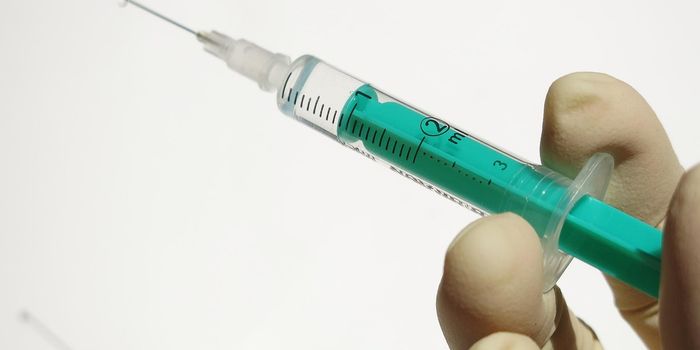The new "tumor-on-a-chip"
In order to mimic the microenvironment of a tumor in the human body, researchers from Kyoto University have developed a device that they are describing as a 'tumor-on-a-chip'. The device is capable of mimicking the biochemical and biomechanical environments of tumors in vitro in order to allow for enhanced testing for potential new anti-cancer drugs. The research was published recently in the journal Biomaterials.
As small as a coin with a 1-millimeter well in its center, the tumor-on-a-chip is meant to mimic structurally as well as chemically a real tumor in the human body. As Science Daily describes, the small well on the chip is surrounded by 100 µm micro-posts, which support the growth of vasculature around the cultured tumor cells – a concept that is seen in human cancer tumors. To put it into simpler terms, blood vessels grow around the tiny posts to create an intertwined 3-D web on the culture.
"This 'perfusable vasculature' allows us to administer nutrients and drugs into the system to mimic the environment in the body," explains Yuji Nashimoto, first author of the study. "This allows us to have a clearer picture of the effectiveness of cancer-treating compounds."
The need for this type of technology is clear, state the researchers. Testing new drugs in cultures is time-consuming and often futile. "Potential compounds are tested using animal models and cells cultured in a dish. However, those results frequently do not transfer over to human biology," adds Nashimoto, of Tohoku University. "Furthermore, cells on a dish lack the three-dimensional structure and blood vessels, or vasculature, that keep it alive. So, we came up with a plan to construct a device that solves these issues."
The findings from the researchers’ investigations show that this type of vasculature was successful in maintaining tumor cells’ healthy and proliferating so that anti-tumor drugs could be tested in more natural environs. They also found that drugs tested were most potent under flow conditions of the vasculature, proving, says lead researcher Ryuji Yokokawa, “the importance of blood flow in the vasculature when screening for drugs.”
The team of scientists hopes that their work will advance ongoing and future cancer-fighting drug trials. “Due to its size and utility, we hope the new device can expedite the tests on the countless number of potential new drugs,” concludes Yokokawa. “While many questions remain, we are happy to have developed this device and have shown that three-dimensional perfused cell culture is vital for the next step in drug discovery."
Sources: Science Daily, Biomaterials









